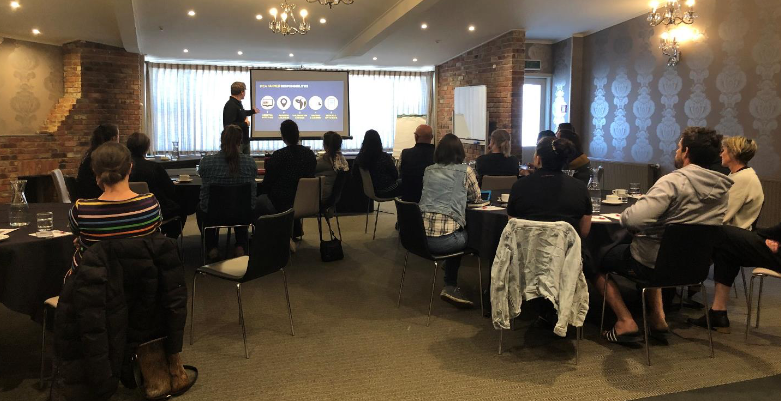
Executive Summary
Our Rural professionals (RP) are passionate people that are out having day to day interactions with our Food and Fibre Producers. Our rural community is isolated and mental health can be an issue for our industry. Are we ensuring that we are supporting the mental health of the people that are there to support our farmers?
That is what this report aims to find out, to understand the current mental health state of the RP workforce, the specific factors driving poor mental health and the access and use of MH services for our RP’s.
This report undertook a survey of 184 Rural professionals across the RP landscape, asking a range of questions to gain a quantitative analysis into their mental health and that of their workplace. They were then categorised into some key finding and recommendations below:
Key Findings:
- 67% of respondents Mental Health were currently or sometimes impacted by the requirements of their role.
- The main drivers of this were High workload, Tough conversations with Clients and Uncertainty.
- Banking roles had the highest impact on mental health.
- Respondents in Banking roles found a stressful work environment as a top factor for impact on their Mental Health.
- 92% of respondents have access to Mental Health service.
- Only 48% of respondents with negative MH impacts on their role had open workplaces that welcomed mental health discussions.
- 19% of respondents that MH is negatively impacted by the requirements of their role have not used any MH services. 59% of respondents whose MH is sometimes impacted by their role have not used any MH services.
- 85% of respondents were comfortable with using MH services.
Key Recommendations:
1. Open your Eyes:
a. To take personal responsibility for your own personal wellbeing in front of the requirements for your role.
b. To take responsibility for supporting and looking after those around you.
c. To promote positive mental health discussions and 5 ways of wellbeing.
2. Organisational Ownership:
a. Create meaningful initiatives to promote positive mental health discussions in workplaces.
b. Ensure all their people have access to some form of MH service for their employees.
c. Promote training for your people – such as Mental First Aid or Resilience Training.
3. Leaders leading change:
a. Leaders must learn to understand their team:
i. What is the mental health of their team?
ii. What affects their mental health – S.C.A.R.F model
Leaders need to constantly to check in with team members, ask questions and put initiatives in place to respond.
b. Leaning into the tough conversations.
i. Noticing when someone’s mental health is being affected.
ii. Asking your team what requirement of the role are affecting their mental health.
iii. What initiatives to drive profits and sales are driving poor mental health environments?




